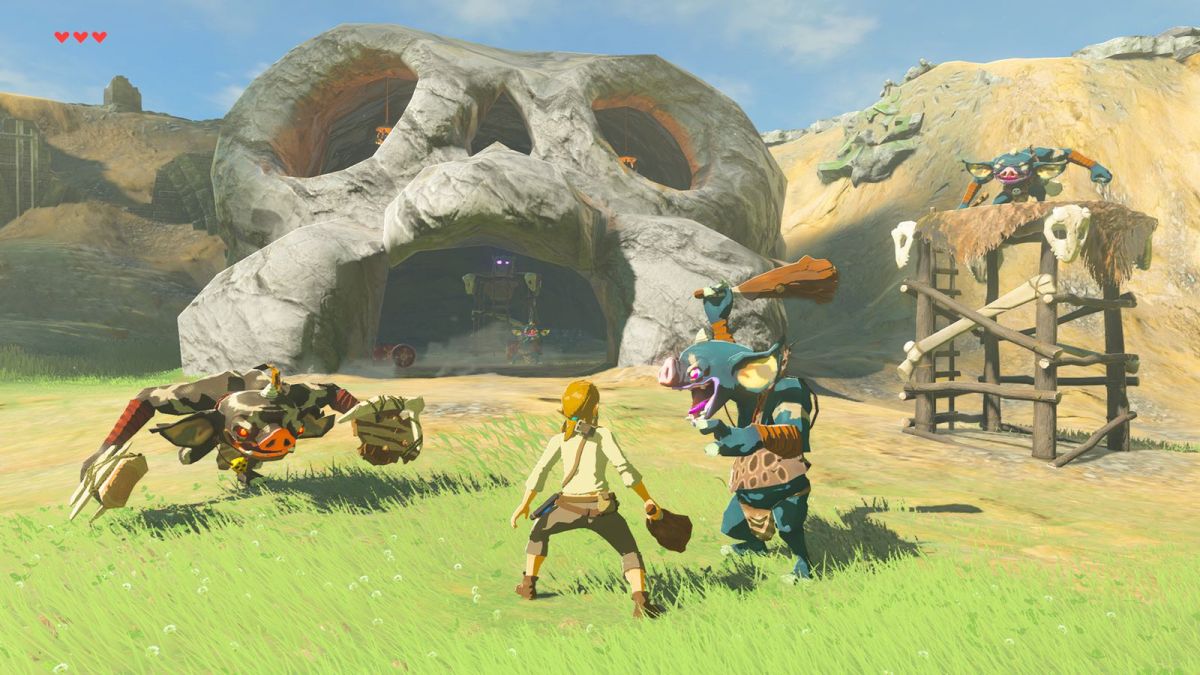Be the hero of your own story
Sappy. Sentimental. Downright cheesy. If there’s a video game story (or really any other media, for that matter) that is going to make me cry from pure emotion, you can bet your bottom dollar that I’m going to love it. With the world becoming an increasingly horrific dumpster fire that somehow burns hotter every day, media can be a welcome respite from the chaos.
Don’t get me wrong here, I love dark, provocative stories in certain contexts, but sometimes, what you really need is something that knows what it is, and leans as hard as it can into that fantasy. I’m not talking about dragons and wizards, but a different kind of fantasy — the fantasy of play (although there is quite a bit of overlap between those two). Allow me to explain.
Stating the obvious here, but when we play a video game, we’re engaged in very active play: pressing buttons to manipulate what we see on the screen, and engaging with gameplay systems that designers have put in place to provide us with a fulfilling experience. We love exploring the constraints of those systems, and using their rules to create scenarios where we come out on top.

Another kind of play
But when we add in the storytelling elements of a game — the setting, characters, plot, and so on — we’re engaging with another type of play: make-believe. Similar to how a child might play princess or knight, there’s something in us that loves the fantasy of being someone else. It’s the same thing in us that loves immersive experiences, which can include anything from an engrossing movie to an all-enveloping real-life experience like going to Disneyland or a Renaissance Faire. In those scenarios, we allow ourselves to shed our identities and put on new ones — something that can be incredibly freeing — and we do the exact same thing when we allow ourselves to give in to the fantasy of a video game.
A lot of games tend to be pieces of genre fiction like sci-fi, fantasy (now we’re talking about the dragons-and-wizards variety), and even westerns, and that’s because genre fiction is especially good at helping us get out of our own heads and into something that feels like more of an adventure. The best genre fiction knows what it is and leans into it hard, and by that, I mean that its creators understand the conventions and tropes of a piece’s respective genre, and instead of shying away from them, they embrace those conventions whole-heartedly and without irony. What’s even better is when a game’s mechanics allow for emergent storytelling, because when we create our own story beats without any scripted help from the game, we feel even more ownership of our own narrative that we’re playing out.
Think of the rousing speeches spoken triumphantly over the intercom on the Normandy in Mass Effect, or the swell of the music when you first lay eyes on the beautiful pirate ships that you know contain treasure in Uncharted 4. These moments could definitely be considered cheesy or over-the-top to some, but giving in to those indulgent moments is what helps us really feel like we’re living our dreams as a space commander, or a treasure hunter. People joke about games like God of War being nothing but a power fantasy, but honestly, that’s what it’s supposed to be, and I don’t think there’s anything wrong with that.
The Blank Slate
In other media, having a Blank Slate protagonist can be more of a problem, because they can come off as bland and uninteresting most of the time. But in games, having your main character be a hollow shell can actually be a big advantage, because, given the nature of play, players already have a tendency to project their own chosen persona onto that character.
There are some instances where having a more specific character can be just as affecting, too — my go-to example is always The Last of Us, because that game does a great job of using play, specifically how intense and harrowing it can feel at times, to make you feel for the characters and the journey they’re going through. If you let yourself give in to the fear and desperation that some of the more intense moments of that game present you with, suddenly the emotional highs and lows hit a lot harder.

Giving in to the fantasy
When we talk about games being so emotionally impactful, I think this is why. Giving ourselves over to story, especially in such a strong and sometimes personal way that games ask of us, can mean really moving and enriching gaming and storytelling experiences.
Not all, but a vast majority of beloved, classic games give into one form of fantasy or another. Pokémon: going on an adventure with companions who fight loyally at your side. The Legend of Zelda: becoming the stoic, loyal, heroic warrior who saves the princess and the rest of Hyrule. Stardew Valley: moving to a quaint seaside town and living the peaceful life of a farmer while also making friends and finding love. The list goes on and on — there are an endless number of little fantasies like this, and an endless number of games that help us fulfill them.
We don’t have a lot of occasions in life as adults to get to engage in make-believe, but we do have video games. Having a consistent place where we can go and be a hero or fall in love with an imaginary friend for a while may sound silly to some, but if we’re willing to let go of the part of us that cringes a little bit and embrace the cheese, engaging in play can be an incredibly gratifying experience.
Story Beat is a weekly column discussing anything and everything to do with storytelling in video games.





Published: May 4, 2022 04:00 pm